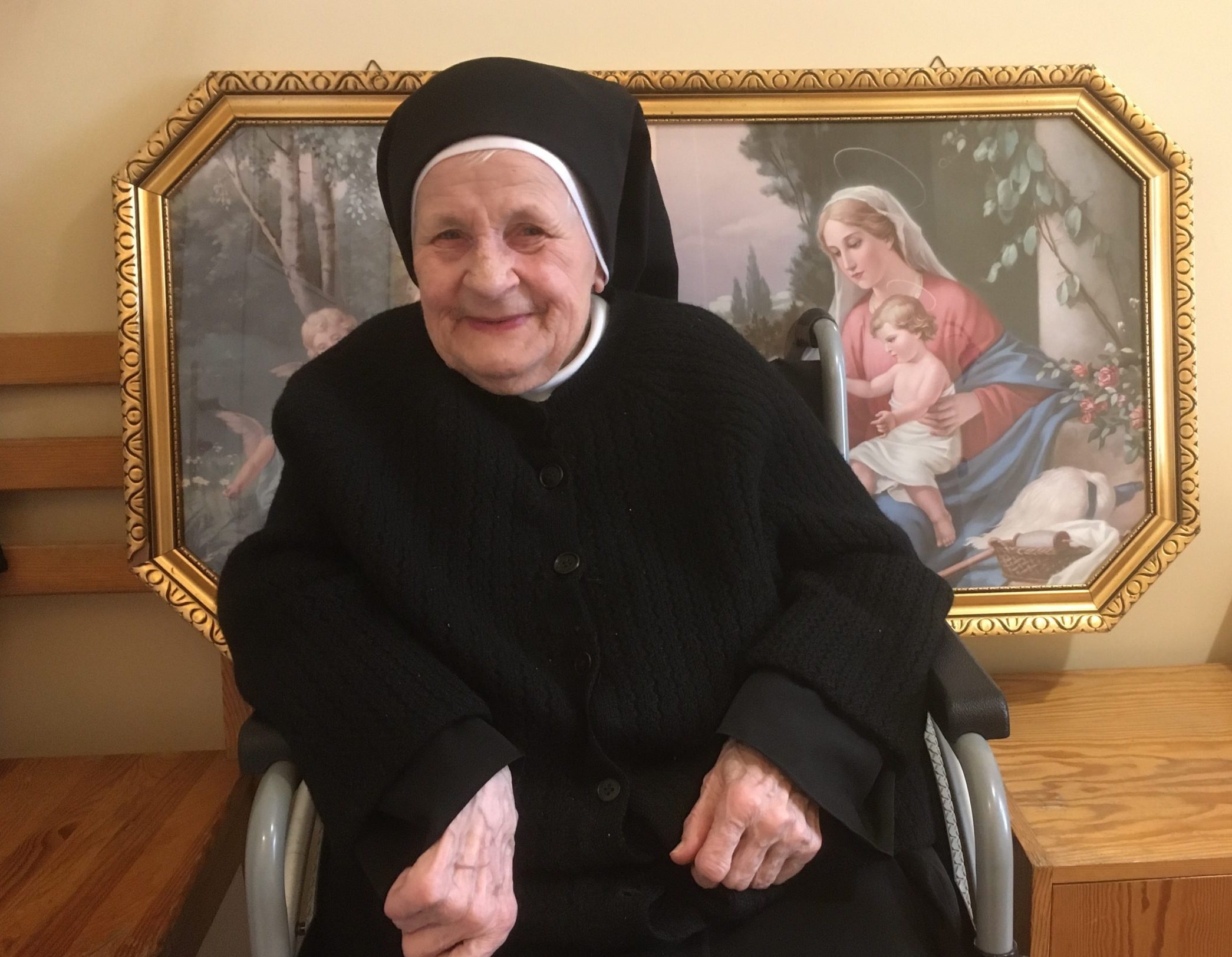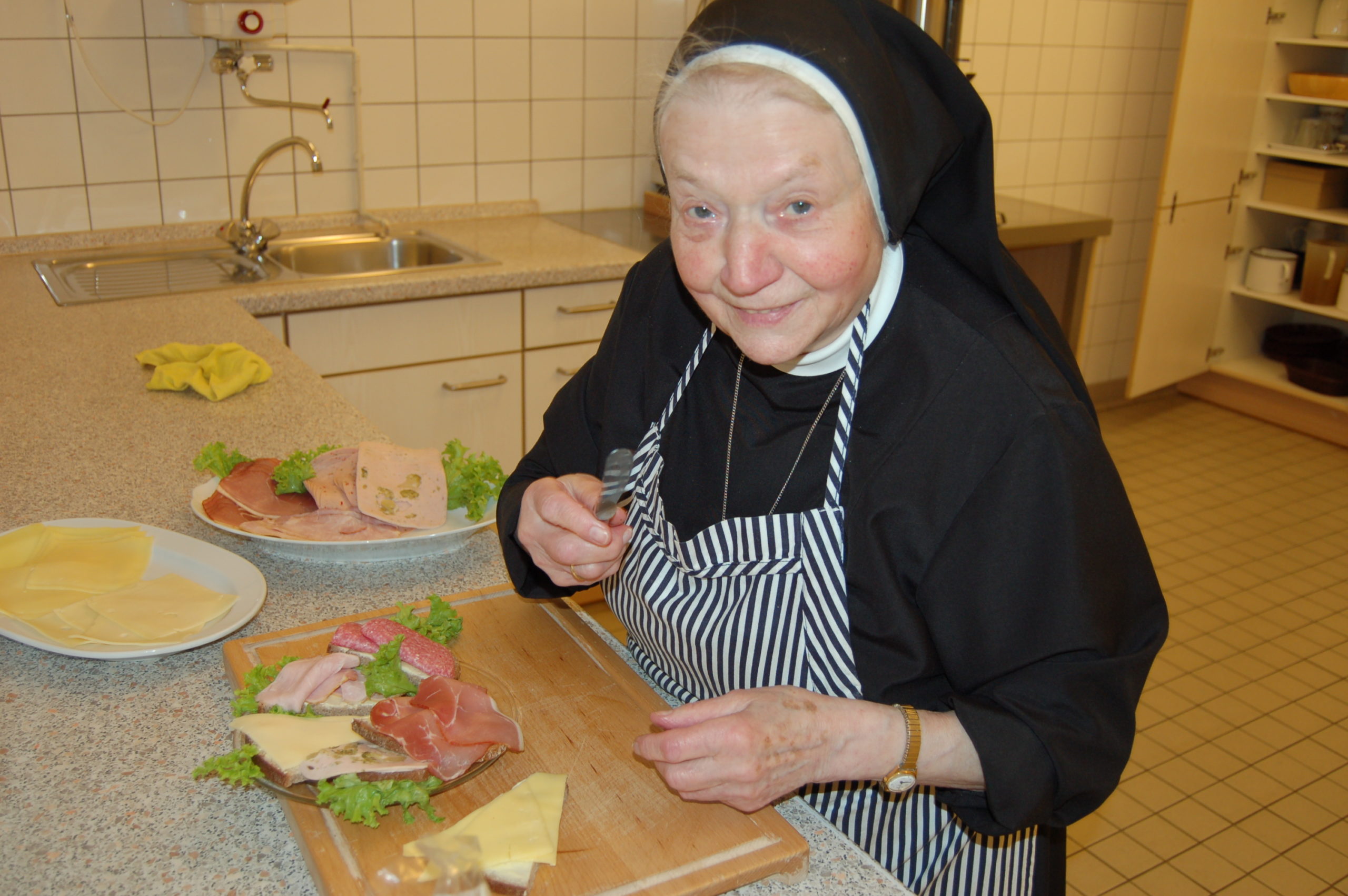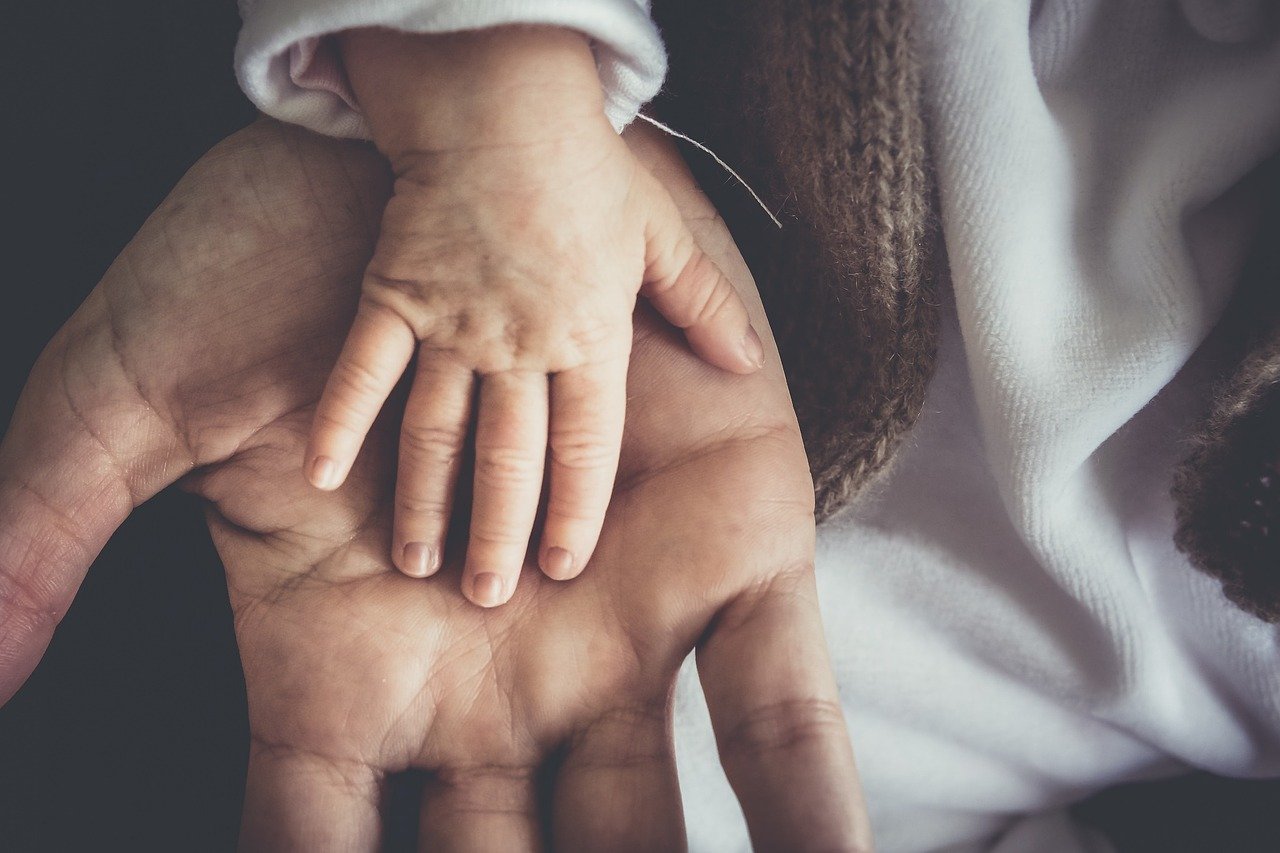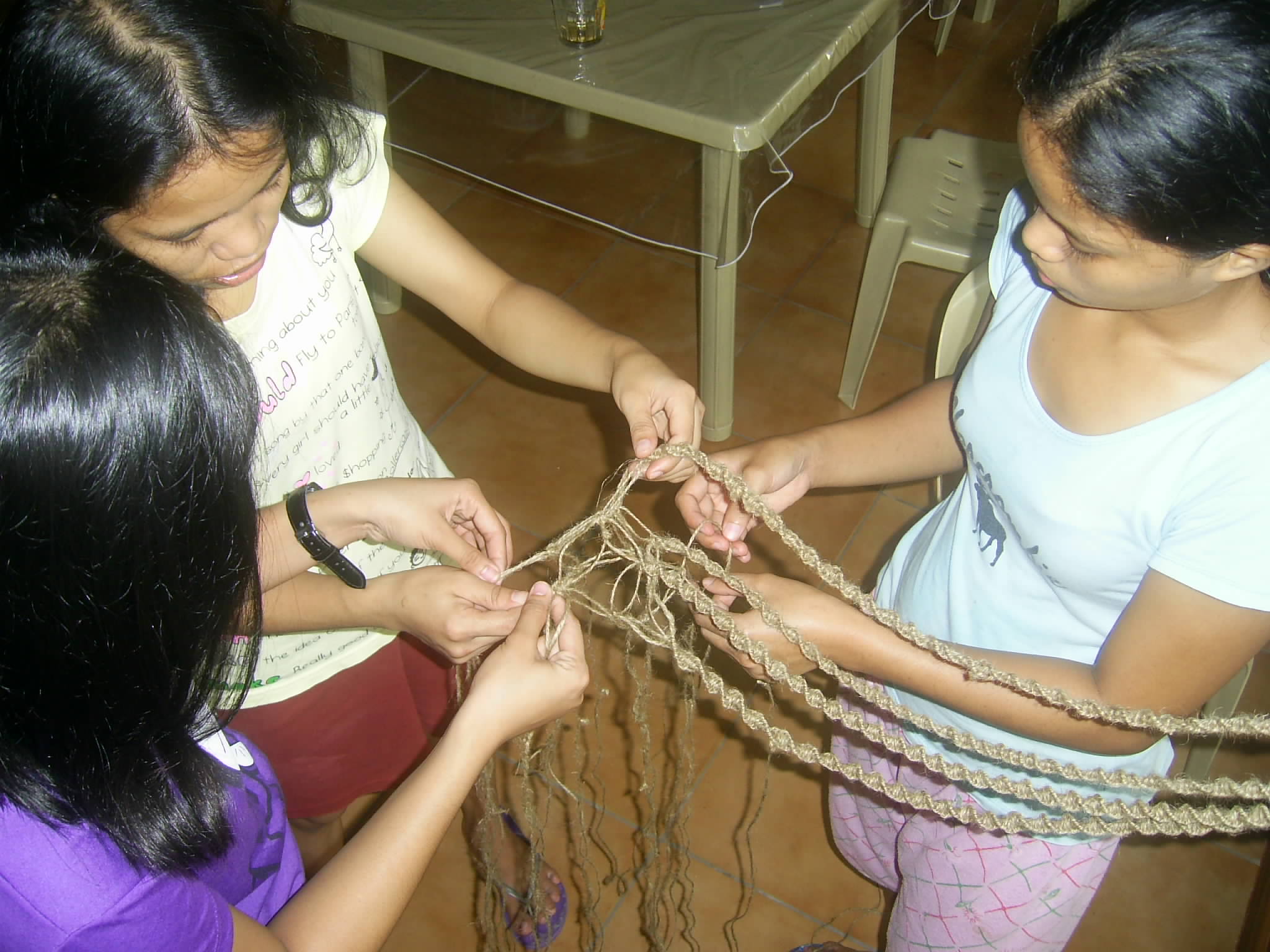
Mar 24, 2021 | FORUM, NEWS
I was born in Berlin on September 12, 1937, at nine o’clock, on a Sunday.
I am the only child.
After the First World War, my parents emigrated from Poland, near Berlin, to the town of Burgwall. There we had a large shop that had everything: food, toys, bedding. I have always been happy to be there. I remember that the store was visited not only by Poles, but also by Jews, Russians and Germans.
When I was 4, my father was shot. After this situation, my uncle took my mother and me to Poland, near Chojnice. We moved to Lipka (Złotów poviat), where I spent my later childhood and adolescence.
When I was 8 my mother got married for the second time.
As my parents did not want a flat in Lipka, we moved to Słupsk. I graduated from primary school there. As a teenager, I started working with my mother, cleaning catechetical rooms at the parish. I also earned extra money by cleaning the dentist’s office and the rooms at the Canonesses.
I went to Chojnice for a year, to a boarding house for girls, which was run by the Franciscan Sisters of the Passion. There were seventy girls there. There we gained knowledge in the field of good manners. The sisters taught us to behave properly at the table and in different places, we did various manual work, we learned to cook. Later I returned to my family home.
From childhood, I wanted to become a nun. There were sisters in Słupsk, where I lived with my parents, but I did not want to go to any congregation that was close to my family home, but to go somewhere further.
When I was about twenty, I found an address for our sisters in the “Catholic Guide” newspaper. Then I told my mother that I wanted to go to the monastery. My mother took this information very calmly, she even said: “When my cousin went to the convent, you can also go, she was an only child and you are an only child.”
It was evident that it was good news to my mother, so I decided to write a letter to the address I found. Mom read it, agreed to send it, and then saw an envelope with the address to which the letter was to be sent. After a moment of reflection, she said: “You are going to those sisters with whom I gave birth to you.”
I was surprised by what my mother said, I did not understand it and seeing my surprise, she told me what it was like when I was born: “There were Elizabethan Sisters not far from our house in Burgwall, and when I had labor pains, I went to see them because they had a delivery room. Unfortunately, due to the fact that there were no more places in the hospital, they refused to admit me, so I drove 50 kilometers further, all the way to Berlin. There I found a delivery room at the Sisters of Mary Immaculate. And that’s where you came into the world with them. ”
And so I found out that I was born in Berlin to our sisters, whom I wanted to join as an adult girl. God guides us in amazing ways.
* * * *
My mother taught me to forgive, thank, apologize and pray, and not resent the other person. She repeated that she should always be reconciled, despite the fact that each of us is different. I have to always pray and forgive.
This is what my mother taught me and I tried to practice this in my religious life, and I wish this for each of us in this Year of Unity in our Congregation.
S.M. Kryspina

Mar 21, 2021 | POSITIVE IMPULSES
Two options before you: you can plan to do good, and you can be led by goodness to do good. The first is done with a plan and is programmed. The latter is guided by the goodness in you. The difference seems slight. But the truth is that there is a big difference. The former becomes a task in the to-do list and the latter is an expression of yourself. The former can be motivated by different reasons, the latter is more an outpouring of what is inside you. So do not program to do good but do good spontaneously and instantly. Watch out and you will see the difference. Understand the difference to make the difference.
Don Giorgio

Mar 17, 2021 | NEWS
In the Church, every Year we have feast of St. Joseph. It is March, the month when in our Congregation, through novena, fasting and pilgrimage to the Shrine of the Guardian of Families in Kalisz, we are preparing for the celebration of the Spouse of the Blessed Virgin Mary.
It was in this context that I had the thought to share with the Sisters that what I have experienced recently.
When Sister Provincial Superior called me in the spring of 2019, I was at school, I had a “window” between lessons. The conversation concerned postgraduate studies organized by the Child Protection Center at the Ignatius Academy in Cracow. I was surprised because after over twenty years in catechesis, having many household chores, I did not take into account such an eventuality. I thought, are there no younger Sisters in the Province? And the name of the course was also not attractive: prevention of sexual violence against children and youth! At the same time, I felt that this wish was a kind of challenge for me. I saw the continuity between the issues of the suggested postgraduate studies and the earlier preparation for teaching, not only religion, but also family life education. The Provincial Sister also said that the representative of the Child Protection Center sent through the Consultation information to the Major Superiors of Religious Affairs and a request to send representatives of their congregations for such training in connection with the increasingly revealed problem of sexual abuse in the Church. So I took up the challenge. Later it turned out that the majority of our faculty are middle-aged people. You can see some life experience was necessary to bear the burden of the issues discussed.
How does this have to do with St. Joseph? Now, That Guardian of the Church was God’s Son’s first Guardian. He gave Jesus a home and a sense of security when as a child he was most vulnerable and exposed to many dangers. And as a righteous man he took Mary with him, although he needed God’s intervention to make such a decision and, not fully understanding everything, he protected life, he protected man.
When reports on the abuse of minors by clergy (and not only) appear in the media over and over again, their authors are rather not for the good of the Church. Listening to the sisters’ reactions to this type of material in the communities, one can often hear about a campaign, fight or lies directed at the Church. However, this relatively new situation can also be viewed a bit differently, because the problem has existed for a long time and is not isolated. It appeared in earlier centuries, and in recent decades, clear actions in counteracting crimes within the scope of the sixth commandment against minors were undertaken by St. John Paul II, Benedict XVI and now Pope Francis. Let us try to see in these events an opportunity to move from a clerical culture that favors concealing abuses, to an evangelical culture, where every human person with whom Jesus identifies himself counts more in the words:
They made the smallest of these cities ”(Mt 25:40). It is also an opportunity to move from a misunderstood culture of discretion – protecting the perpetrator and blaming the victim, to a culture of transparency – building a sense of security and respecting the dignity of every human being. Such a path can be difficult, but it serves the credibility of the Church. In this way, the words of Christ prove true: “You will know the truth, and the truth will make you free” (Jn 8:32).
Our place in the Church is with the weakest, with whom the world cares the least. This has been the case since the time of the Founder and the first Sisters of Mary Immaculate. Hence, the Patron of our Congregation is a model for us how to protect children, young people and women against violence, not only sexual but also in other forms, also in cyberspace. Looking at St. Joseph We do not find in the Bible a single word that he spoke. This is how he teaches us to listen. Listening to God and listening to man – listening attentive, compassionate, supportive, which leads to providing concrete help to specific people. This is what victims of violence need to listen to with respect, understanding, without showing strong emotions, and let them believe that they are telling us the truth. They expect help or at least some hints or indications. Saint Joseph appears to us as a man subject to religious and secular law. In this way, we learn from him, to respect and comply with applicable law. In terms of sexual abuse, it is related to the skillful response to attempts to reveal or visible symptoms of abuse present in our charges or people with whom we cooperate. It is also about taking appropriate action in cooperation with appropriate representatives of the Church and state bodies.
It is also worth bearing in mind that the perpetrators and accomplices of sexual abuse also include women, mothers, teachers and carers. Therefore, let us be transparent all the more, let us live evangelically by following the words of the Lord Jesus, which have proved so successful in the life of St. Joseph and his Immaculate Bride: “So it is not the will of your Father in heaven that one of these little ones should perish” (Mt 18:14). Let us try to protect children, because our Lord identifies with them: “whoever accepts one such child in my name welcomes me” (Mt 18: 5). Often the victim becomes the perpetrator. Thus, by conducting preventive activities, we contribute to a gradual reduction in the scale of the phenomenon causing so many human tragedies, which victims often start talking about only years later, as adults, because earlier shame and helplessness shut their mouths off.
To conclude my reflection, I would like to ask you to pray for victims of violence, especially victims of sexual violence – its unfortunate effects come after years also due to the disbelief of the environment that something like this could have happened. Working in many institutions as a catechist, I have personally encountered students who are victims of sexual violence in the family … Such wounds heal for a very long time, sometimes throughout ones life. Now, looking at the image of Saint Joseph in our home chapel every day, I am moved by the loving care with which he holds a small, defenseless Jesus in his hands. It is an invitation for me to care for those whom I serve, like the Guardian of the Son of God.
Sr. M. Michaela

Mar 14, 2021 | POSITIVE IMPULSES
To cooperate is an art and also an expression of what you are. Obviously, here it deals about cooperating in doing good. If you feel difficulty in cooperating, you can analyze, why you do not want to cooperate? Is it because you want to be protagonist? Or something else? Cooperation is opening your heart to include the other and to complement in the good that is coming from the other. Cooperation raises our standard of being together to new heights where you can look to the horizon together with the others. It is an integral vision where you integrate different possibilities together with different people with your cooperation. Cooperate in good and make the difference.
Don Giorgio

Mar 12, 2021 | SPIRITUALITY
When I speak at funerals, I like to ask if there is anything the deceased left us. By this I mean not so much money or material things, but a matter that was important to him and which should be continued in his spirit. So it is a spiritual testament.
Superior General Sr. Sybilla In a letter written on the anniversary of the founder’s death, on December 7, recalled this testament of Fr. John Schneider: “Stay united!” So it is about building and deepening unity.
Today I would like to share with you three thoughts on this.
Building unity
Sr. Sybilla’s letter, and with it the words of its founder, Father Johannes Schneider, remind us of something that is often quickly forgotten: unity is simply not present from the very beginning. It has to be created and built. By the way, this also applies to a lot of other things.
An example of this comes from the area of kinship. When I am born into a large family, I have a brother or sister. For this relationship to develop into a brotherly or sisterly bond that enriches my life and is lasting and resilient for me even in difficult situations, siblings must also do something for it. They have to build relationships with each other.
These thoughts can be well applied to a religious community. The promise of vows and the wearing of a uniform religious habit are not unity.
This already shows that unity is not an external matter, but an internal relationship that binds people together.
Watching over unity
In the letter of Sister Sybilla, we are also asked to watch over unity. Thus, unity can be lost. From this point of view, our attention is required.
Guarding or watching – I mean the people or objects being guarded. They are always the ones that are precious and important, and where there would be tragic consequences if they were stolen or lost. I would not and would not be watching over unimportant things. It only follows from this that unity is something very precious. It is valuable for our life together, and its loss would have negative consequences.
Spiritual Exercise: What spiritual things are so precious to you that you should not lose them under any circumstances? What would you like to watch over? (And if you want to think more deeply, you can also ask yourself: What exactly is your attention?)
Deepening unity
We have just described unity as a relationship. Thus it is also subject to the laws governing every relationship, namely, it can change. It can get stronger, but it can also flatten and disappear completely.
I can tell you about a beautiful example from the North Sea coast. The coastal people are in a never-ending fight against the sea. In their painstaking work, they try to pull a piece of land out of the sea. When asked why they do this, a Frisian once said, “You know, if we don’t take the land from the sea, the sea will take it from us.” Leaving it as it is not a solution.
This picture quite nicely describes the concern of the founder, Fr. John Schneider. If I lean on oneness as I experience it, it will be lost. It will be my job to deepen it over and over again and keep it alive in this way. What this might look like in concrete terms would also be a good and valuable spiritual exercise. We will return to this topic (deepening unity) in later discussions.
Prelate Dr. Stefan Dybowski
02/15/2021 Monatsvortrag Kloster St. Augustinus, Berlin-Lankwitz





